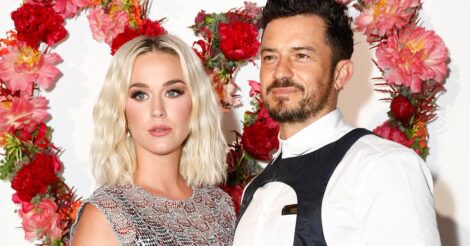
The ongoing coronavirus pandemic continues to affect the country – hospitals continue to be overwhelmed, how to safely reopen schools has become a cause of concern, states pausing or rolling back plans to reopen has also impacted the economy.
The US now has over 5 Million total recorded cases of COVID-19 – the past seven days has seen an average of 53,000 new cases per day, with about 1,000 coronavirus-related deaths every 24 hours.
While the current numbers are showing signs of improvement, state officials have expressed that it’s still not where it needs to be – as Texas Gov. Greg Abbott puts it, the numbers are “still too high.”
Many have been anxiously anticipating the development of a vaccine against the novel coronavirus and the race to find one continues – there are over 100 vaccines in development across the globe.
On Tuesday (August 11), Russia announced that they have approved a coronavirus vaccine – The vaccine is developed by the Moscow-based Gamaleya Institute and Russian Direct Investment Fund (RDIF) head Kirill Dmietriev says that “safety is at the core of the vaccine.”
However, they haven’t released scientific data on its testing to the public as yet. News outlets have also been unable to verify its claims of safety and effectiveness.
The vaccine has yet to go through Phase 3 trials to study its effects on thousands of candidates.
So how did it get approved so quickly?
According to Kirill, during a pandemic, Russian law allowed them to run phase 3 trials while “launching the vaccine to high-risk groups” at the same time.
“We believe it is exactly the right approach,” he added.
“We know the technology works and we will publish the data in August and September to demonstrate that,” Kirill said, noting that the vaccine will be made available to other countries around November.
However, health experts have expressed concern about releasing a vaccine that has not been fully tested.
“The bar is necessarily set very high for criteria that must be satisfied for approval after Phase 3 clinical trials,” Danny Altmann, Professor of Immunology at Imperial College London, told the Science Media Centre. “The collateral damage from release of any vaccine that was less than safe and effective would exacerbate our current problems insurmountably. I hope these criteria have been followed. We are all in this together.”
US Health and Human Services Secretary Alex Azar also announced on Tuesday that they will be following the US’ strict safety standards before rolling out any vaccine.
“We will require any vaccine in the United States be safe and effective and meet the FDA’s gold standard,” he said during a news conference from Taipei, Taiwan, adding that “this is not a race to be first.”
According to the World Health Organization, there are 28 vaccines in human trials around the world, and per Sec. Azar, two of the six vaccines the US government invested in started Phase 3 of the clinical trials weeks ago –
“We have half a dozen or more vaccines,” Dr. Anthony Fauci, the nation’s leading expert on infectious diseases, told Deborah Roberts in a preview of ABC News’ National Geographic event set to broadcast Thursday (August 13). “So if we wanted to take the chance of hurting a lot of people or giving them something that doesn’t work, we could start doing this, you know, next week if we wanted to. But that’s not the way it works.”
WHO issued a statement on Tuesday (August 11) saying that they were in contact with Russian scientists and authorities and are looking forward to reviewing details of their vaccine’s trials.









